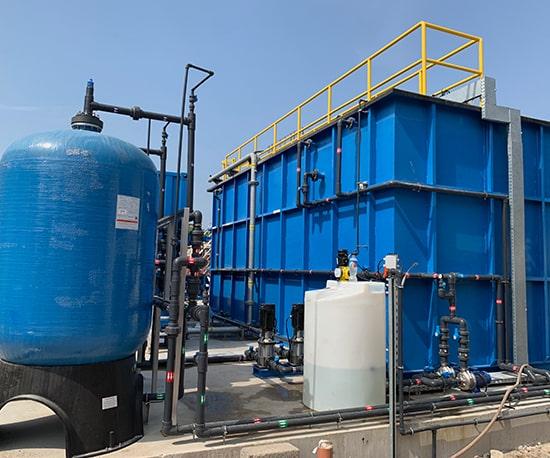In the world of healthcare, safety and precaution is paramount. Mainly, the equipment needs to be clean in order to prevent diseases and spreading of harmful pathogens. In these cases, sterile processing machines are unsung heroes of a healthcare facility. The importance of sterile processing in healthcare cannot be understated, ensuring the equipment is safe to use and free from harmful pathogens.
This article sheds light on the importance of hydro water treatment for sterile processing, the significance of maintaining water quality and the technologies that have emerged in recent times.
Understanding the Role of Sterile Processing in Infection Prevention
Sterile processing is the thorough and systematic practice of cleaning, disinfecting, and sterilizing medical instruments, devices, and equipment to ensure they are free from harmful pathogens and safe to use on patients.
The Process of Cleaning, Disinfection, and Sterilization:
1. Cleaning: In the first step, cleaning involves removing visible dirt, blood, and other debris from the equipment. Cleaning is usually done with soap, water, and brushes. You need to clean off the visible stuff before moving to the next step.
2. Disinfection: After cleaning, the equipment goes through a disinfection process. Disinfection kills most germs but may not get rid of every single one; it kills most germs but not all.
3. Sterilization: This is the final and most crucial step. Sterilization makes sure that no germs, not even the tiniest ones, survive on the equipment. Special sterile processing machines or chemicals are used to eliminate all germs.
Critical Role in Infection Prevention:
Sterile processing plays a pivotal role in keeping patients safe from infections in healthcare facilities. Here’s how:
– Patient Safety: When medical instruments aren’t properly cleaned and sterilized, they can carry harmful germs and bacteria from one patient to another, causing infections. Sterile processing helps prevent this.
– Infection Control: Infections can be serious and sometimes life-threatening. Sterile processing provides frontline defence against these infections.
– Quality Healthcare: Sterile processing ensures that medical equipment is in top condition to provide high-quality healthcare. Doctors and nurses need safe and clean tools.
Significance of Water Quality
When water quality is compromised it can have a significant impact on the sterilization process leading to concern in patient safety. Sterilization machines rely on water to complete the process of cleaning, disinfection and sterilization hence water plays a crucial role in the cycle.
Sterile processing machines use dissolving agents to clean and disinfect. If the water quality is poor, the agents may find a hard time dissolving. This makes the process less reliable.
After the sterilization process, the equipment needs to be rinsed thoroughly. The water quality affects this process as well. It can leave residues on the equipment leading it to contamination and risking patient safety.
Poor water quality is home to many bacteria and microorganisms. This can lead to microbial growth in machines.
Waterborne contaminants can introduce germs to medical instruments, increasing the risk of infections among patients.
Hydro Water Treatment and Its Relevance in Healthcare Applications
Hydro water treatment is a special method used to make water super clean and safe for various purposes, especially in healthcare settings. It is a process of removing all impurities and making it germ free.
Relevance to Healthcare Applications
Hydro water treatment is important in a healthcare facility for the following reasons:
Patient Safety: In a hospital, water is used for almost everything. If the water quality is compromised it can lead to risking patient safety. Many germs can be introduced if water quality standards are not met and can be a risk in all processes involving patient safety.
Sterile Processing: Water must be super clean to be used in sterile processing machines. Hydro water treatment ensures that water is free from all impurities and harmful pathogens that compromise the cleanliness of the medical equipment.
How it Improves Water Quality for Sterile Processing
Hydro water treatment plays the role of a superhero in sterile processing for a healthcare facility. Here’s how:
It filters out even the tiniest bit of impurities from the water. It removes contaminated particles and germs from water.
Hydro water treatment can be used to kill germs in the water to be extra safe.
The water treatment keeps the water quality consistent so that it can be trusted as clean and safe.
Pros and Cons of Hydro Water Treatment
Pros of Using Hydro Water Treatment:
1. Improved Water Quality: Hydro water treatment ensures that the water is exceptionally clean and safe, reducing the risk of contamination
2. Enhanced Patient Safety: Clean water is essential for patient safety, as it prevents infections and the spread of waterborne diseases.
3. Effective Sterile Processing: Sterile processing machines work better with super clean water, making medical instruments safe for patient use.
4. Consistency: Hydro water treatment maintains consistent water quality, so healthcare workers can rely on it for various tasks.
5. Longer Equipment Life: Clean water extends the lifespan of expensive medical equipment by preventing corrosion and buildup.
6. Efficiency: Machines operate more efficiently when they use clean water, reducing the need for repairs and maintenance.
7. Reduced Risk of Waterborne Diseases: Hydro water treatment eliminates the risk of waterborne diseases among patients and staff.
8. Aseptic Environment: It helps maintain a germ-free and aseptic healthcare environment, vital for patient care and infection control.
9. Enhanced Reputation: Healthcare facilities using hydro water treatment earn a reputation for top-notch patient care and safety.
10. Regulatory Compliance: It ensures compliance with healthcare regulations and standards that require the use of clean water.
Cons of Using Hydro Water Treatment:
1. Cost: Setting up and maintaining a hydro water treatment system can be expensive. It requires investment in equipment and ongoing operational costs.
2. Energy Usage: Some hydro water treatment methods may consume a significant amount of energy, contributing to operational expenses.
3. Maintenance: Hydro water treatment systems require regular maintenance to function effectively, which can be time-consuming and costly.
4. Technical Expertise: Properly operating the system and troubleshooting issues may require specialized knowledge and training.
5. Environmental Impact: Some treatment methods can produce waste or emissions that need to be managed, posing potential environmental challenges.
6. Space Requirements: The equipment and infrastructure for hydro water treatment may occupy space within the healthcare facility.
Technological Aspects of Hydro Water Treatment Systems
Hydro water treatment systems use a range of technologies to make sure water is super clean and safe. Let’s break it down in simple terms:
1. Filtration: These systems have super filters that can trap tiny particles and germs in the water. It’s like using a super-fine sieve to catch even the tiniest grains of sand.
2. Disinfection: They often use special techniques like adding chemicals or using ultraviolet (UV) light to kill germs in the water. It’s like using magic water that zaps germs.
3. Testing and Monitoring: Hydro water treatment systems have sensors and monitors to constantly check the water quality. If something isn’t right, they can adjust things to make sure the water stays super clean.
4. Maintenance: Regular checks and cleaning of the system are essential to keep it working perfectly.
Integration with Sterile Processing Machines
Now, how do these super-clean water systems work with sterile processing machines? It’s like a team effort:
Sterile processing machines need super clean water to do their job. They can’t work properly with dirty or germy water, just like a chef can’t make a delicious meal with spoiled ingredients.
The hydro water treatment system makes sure the water going into the sterile processing machines is pure and clean. It’s like giving the chef the best ingredients to work with.
When the machines do their thing, they can be sure that the water won’t introduce germs or contaminants. It’s like having a chef who knows that all the ingredients are safe and clean, so the food they make is safe to eat.
In summary, while hydro water treatment offers numerous advantages, including improved water quality, patient safety, and equipment efficiency, it comes with costs, maintenance requirements, and potential environmental considerations. The decision to implement hydro water treatment should consider both the benefits and drawbacks, as well as the specific needs and resources of the healthcare facility.
Sterile processing machines require good water quality. The standards should be met in order to ensure patient safety and prevention from infection. At the end the ultimate goal of hydro water treatment is to provide the best possible health care.



